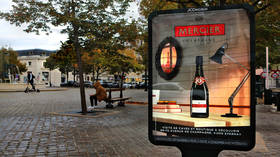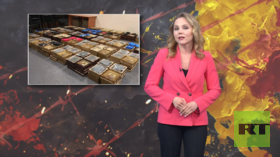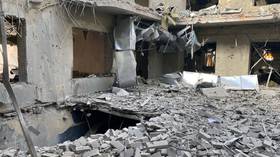Champagne grape-pickers sleeping rough in luxury French town – Guardian

People employed to pick grapes for France’s luxury champagne brands are being forced to sleep rough and steal food to stave off hunger, an investigation has found.
The Guardian reported on Monday that it had found seasonal workers from west Africa and eastern Europe in the town of Epernay in northern France sleeping on the streets or in tents as the vineyards did not provide accommodation.
Dozens of them spent their nights in the doorway of the cinema opposite the town’s main train station, it wrote.
Epernay is home to world’s most expensive champagne brands, including Dom Perignon and Moet & Chandon. Total champagne shipments from the town in 2023 stood at 299 million bottles and generated over €6 billion ($6.25 billion) in revenues, according to the industry body Comite Champagne.
The grape-picking season at Epernay lasts from August to October. This year’s yield was estimated at 10 tons of grapes per hectare.
Some workers interviewed by the publication claimed they were underpaid or not paid at all. Others said they had not been provided with enough food and left without means of buying any, having to resort to stealing.
“They were treated like dogs,” a retired winegrower told The Guardian. “The people who do that aren’t winegrowers: they’re exploiters,” he added.
Last year’s season was reportedly dubbed “the harvest of shame” after four seasonal grape-pickers died due to suspected sunstroke.
In a case scheduled to go to court in March, four people, including a vineyard owner, have been charged with human trafficking.
According to the unions, it is hard to hold specific champagne houses responsible for the exploitation because of a system that involves delegation of responsibilities from one company to another.
Comite Champagne issued a statement to The Guardian expressing “shock” at the “shameful practices” and asking authorities to step up controls and severely punish any abuses.
The industry body also reported a drop in shipments in the current year caused by “the sluggish global geopolitical and economic situation and widespread inflation.”














